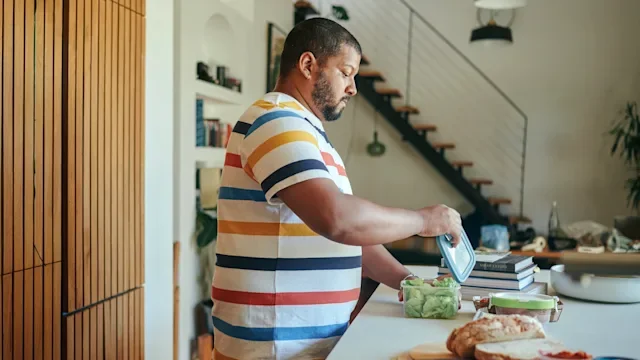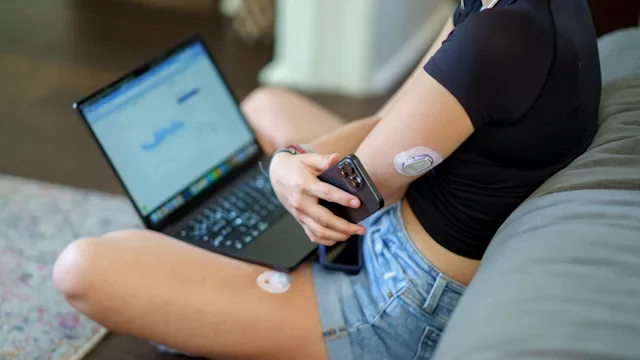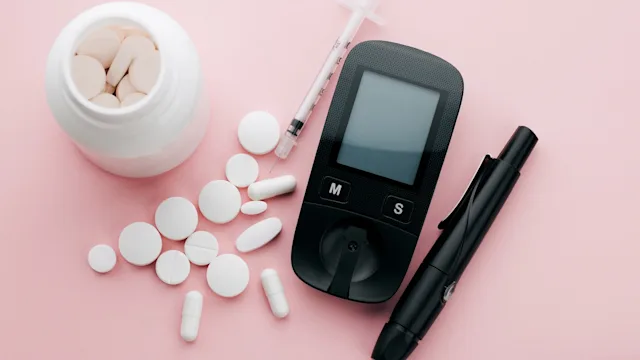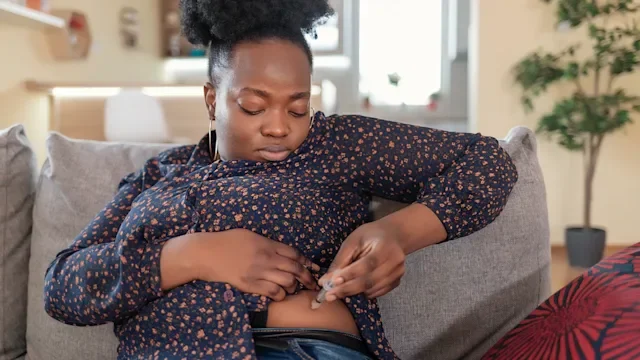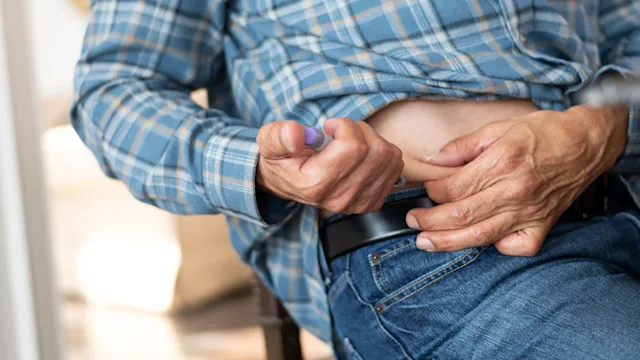Key takeaways:
Xenia Goldson, a 71-year-old retired educational assistant, says that for years she paid too little heed to diabetes warning signs.
A diagnosis of Type 2 diabetes left her facing a lifetime of potential health consequences.
Making healthy lifestyle choices part of her routine has helped her manage her condition.
Xenia Goldson knew that her mother battled diabetes before dying in their home country of Panama, which Xenia left at age 16 to live with her father in the U.S. But for decades, she says, she gave little thought to what it might mean for her.
Xenia, a 71-year-old retired New York public school educational assistant, said she was also aware her younger sister had diabetes. But it was rarely a visible health problem.
And when Xenia faced gestational diabetes when she was pregnant, doctors said it would go away. She didn’t know that it could raise her risk of Type 2 diabetes, which was already significant because of her family history and love of sweet foods.
Even when she was diagnosed with Type 2 diabetes more than a decade ago, during treatment for breast cancer, addressing the condition took a backseat amid more grave concerns.
All the while, Type 2 diabetes — which accounts for up to 95% of diabetes diagnoses and occurs when the body doesn’t make enough insulin or has insulin resistance that pushes up blood sugar — was taking its toll.
“I still wasn't fully comprehending the depths of this disease,” Xenia says. “I had to learn this the hard way.”
In 2013, Xenia’s diabetes played a role in her going into kidney failure, which she’s since recovered from. That year, she was also diagnosed with a glaucoma condition related to the diabetes, which she continues to face.
Since then, she’s made big health and lifestyle changes. But diabetes means a lifetime of vigilance, medication, and challenges, she says. That includes expensive medical care to keep the condition in check — another reality she wishes she’d grasped sooner.
Here are 10 things Xenia wishes people knew about Type 2 diabetes.
- GlucophageMetformin
- RiometMetformin
- Glucophage XRMetformin ER (Glucophage XR)
1. Listen to warnings — and know your family history
Typically, Type 2 diabetes develops over time, and most people with mild or early diabetes do not have any symptoms. That makes regular screenings important.
But, looking back, Xenia says she missed warning signs. She also says she failed to grasp the dangers of risky habits, such as using five packets of sugar in a coffee or eating too many graham crackers and other sugary treats.
“I kept reviewing things in my head. Did you listen to people? Did you hear when they told you your sugar’s high?” she says.
While increased weight, low levels of physical activity, smoking, poor sleep, and metabolic syndrome can all increase the risk of developing Type 2 diabetes, race and genetics also play a role. Xenia says it’s important to communicate with your family about all of these risks.
“It’s very important that you know your family history. That’s why I’m passing all of this to my daughter,” she says.
2. Ask questions and be your own advocate
Xenia says it’s essential to press for further answers and do your own research when healthcare workers tell you that you have high blood sugar.
Too often, she says, she brushed off warnings because she didn’t feel any outward symptoms. And that meant she wasn’t able to take preventative measures early on.
“I should have been more mindful to say, ‘Well, what do you mean? What is the sugar level that I should be?’” she says.
3. Accept the reality of your diagnosis
Even after being diagnosed, Xenia says, she mistakenly believed she could reverse it with little effort. She recalls saying once that she had “a little diabetes” and getting a strong warning from someone in the healthcare field in response. “Diabetes is a progressive disease. And it’s going to get worse,” she was told.
“I remember that to this day … I realized, wow, this affects your entire body. You may not feel anything, but it takes a toll,” she says.
Along with various symptoms, people with diabetes also have a higher risk of heart disease and strokes. For Xenia, the condition contributed to her going into kidney failure, which left her in a hospital intensive care unit for some time before she recovered.
4. Be vigilant
For Xenia, being vigilant means taking a handful of medications to battle high blood pressure and keep her blood sugar levels in check, including daily insulin.


“Every morning as I open my eyes, I reach over for my blood pressure monitor. I take my pressure in both arms and record it. Then, I do my finger sticks to get morning sugar levels and record that, also. This is a routine for me,” she says.
She also goes to the gym 5 days a week and has changed her diet. She knows that she must resist falling back to eating white bread or crackers for breakfast or failing to walk when the weather is poor.
“It’s a constant battle,” she says.
5. Learn to stretch your budget
Xenia, who is insured by Medicare, struggles at times with deductibles and often has to pay out of pocket for uncovered providers and medications. That can be challenging on a fixed income.
Type 2 diabetes imposes a substantial economic burden on both the healthcare system and individuals, as a 2013 study in the American Journal of Preventive Medicine found.
“If I didn't have all these medications, most of my money would be for me,” Xenia says. “I learned how to juggle. I just stretch and stretch and stretch.”
6. A nutritionist can help
Once the gravity of diabetes had set in, she knew she had to eat differently but didn’t know how. Should she eat less? Should she eat different foods?
Growing up in Panama, Xenia hated the vegetables her mother made for their meals and tried to hide them under the table. Later, as an adult, she loved sugary treats — sometimes making entire meals of them.
People should realize how much sugar they eat, including in drinks like soda or because of additives to various foods, Xenia says. She adds that working with a nutritionist can be helpful for setting up healthy habits and learning about vitamins, proteins, and nutrients.
7. Get help with an exercise routine
It can be helpful to work with people to create an exercise routine — and to find a variety of ways to make sure it gets done — Xenia says. The same goes for exercise, she adds.
When she first began altering her exercise habits, she started walking all over New York City but, when the weather turned cold or rainy, she couldn’t get that exercise in. Now, she attends low-impact aerobic exercise classes 5 days a week and still takes walks.
But, Xenia says, she has found that exercise isn’t the magic cure that some people diagnosed with diabetes might initially assume it is.
8. Change up your traditions
For Xenia, Thanksgiving is no longer about mashed potatoes, bread stuffing, and rolls. She’s now known to her friends as “the queen of salads.” And she’s learned to like that new label and way of eating just fine, she says.

The spread at a recent Thanksgiving reflected her new reality: “We had fish. We had a snapper. We had two salads,” she says.
9. Prepare yourself for a lifelong change
One of the hardest things to accept is that managing diabetes is a lifelong battle for many, Xenia says.
She recalls one of her physicians once saying, “Listen, you are always going to be on insulin. You know that?” She describes that moment as “kind of a shocker.”
Looking back, she didn’t realize how big of an impact diabetes would have on every aspect of her life.
“I'm gonna be honest with you,” she says, “it's a huge struggle.”
10. Do the best you can
Some nights, Xenia lies awake, frustrated by her inability to get off medications despite her efforts. She says that she often thinks, “How did I get to this point? And how can I control this? And why can’t I control this?”
But not everything is within her control. And Xenia is learning to accept that.
She does her best to eat well, lower stress, maintain healthy sleep habits, and work on her fitness. Her goals remain the same — to one day not need medication and control her diabetes with diet and exercise.
But, in the meantime, she’s proud of the changes she has made to feel better and improve her health. And she’ll keep working at it, she says.

Why trust our experts?









